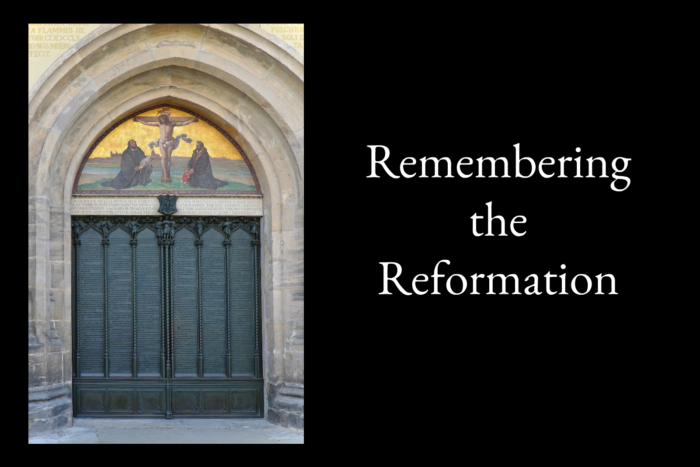Sometimes a Look Back Is Invaluable
The past is a tricky thing. Look back too often and you may end up in the quick sands of pride or bitterness. Never look back and you might repeat your mistakes. But there is always much to be gained by looking back at the lives of those who have gone before us. Unfortunately, this is generally neglected and viewed as “boring”.
I am deeply saddened by this because it is from these godly men and women of the past that we find examples of God-fearing, stand-firm-no-matter-what, holy Christian lives. God has always had His remnant–the true Church– woven throughout history. It has never been a group of great size or much popularity and it was often persecuted mercilessly. But it was always there.
If you have never heard of the Covenanters, the Huguenots, the Anabaptists, the Reformers, or the Dissenters then you may be unfamiliar with the persecution of the past. These are some of the more well-known persecuted groups. There are countless others.
Parenthetically, the true Church has been most persecuted by the followers of the false religion that goes by the name of Catholicism. It never fails to astound me to see the efforts to join with this church when I know the history of it. Only recently, I saw a video of Matt Redman and Chris Tomlin worshiping at the feet of the pope. These two popular artists are known by all. If not by name then by their songs, which are sung in churches around the world. Their apostasy in this way should alarm us beyond measure!
Protestants (named thus because they protested the false doctrines and abuses of the Catholic church) fought long and hard to divide from Catholicism. Many, many lost their lives pulling away from this false church to join Christ’s true Church. They lost their lives in horrible, unconscionable ways. Should we now join it in the name of unity and ecumenism? May it never be!
Some of the stories of these martyrs are recorded in a book called Foxe’s Book of Martyrs. Which I read just a little at a time. It’s taking me years. Literally.
It’s actually a little overwhelming. So why would I even want to read a book like this?
There are a few reasons. I want to tell you what they are and then share a profound excerpt from the book itself.
First, one of the main reasons I like to read this book is to remind myself that God’s promises are true. He really will never forsake us. Even when we are overwhelmed by evil and wickedness in this life. Even when we are attacked, ridiculed, or betrayed. Prison, death sentences, or banishment can’t remove God’s grace and blessing from His children.
The accounts of these martyrs, recorded in this book written in the mid-1500s, are filled with amazing stories of God’s all-sufficient grace. Firmly standing on God’s Word, these men and women refused to recant in front of councils and in trials. There are many records of a martyr singing as he or she burns on the pyre. This can only be strength that comes from God.
So let me tell you… this is a LOT easier to write than to actually contemplate. We can tremble with apprehension when we consider what might lie ahead. But the testimonies of these faithful ones are a much needed reminder that God’s grace will be sufficient for whatever lies ahead.
Second, this book is a reminder of the price that has been paid by the true Church throughout the ages. Satan hates the Bride the Christ. He will do anything he can to shut it down. He has tried to snuff it out (persecution) and he has tried to join it (false religions that use the Bible). But God’s true Church lives on. Yes, it is small and unimpressive, by the world’s standards. But the Holy Spirit has moved and worked throughout the ages and continues to do so. The true Church will live on until she is raptured and taken home where Christ has prepared a place for her (John 14:1-4).
Third, a book like this (along with so many others that tell of the sufferings of believers in other times and lands) reminds us that suffering for speaking the truth should be expected. The Truth of the Word is never welcome to the world. Yes, the Holy Spirit continues His work of convicting and drawing individuals but it will never be the majority. The Word of God will never be appealing to the world at large, which loves its sin and wants no accountability. Wherever someone stands for Christ and His Word, there will be hatred and hostility. Some will give up their years in a prison or give their lives. Others will pay with their reputations or by losing precious relationships. Ridicule, attacks, and suffering should be expected. There is always a cost involved in following Christ whole-heartedly. Always.
And, finally, fourth, it is a great reminder that we need to fear only God. Matthew 10:28 says this–
And do not fear those who kill the body but cannot kill the soul. But rather fear Him who is able to destroy both soul and body in hell.
It is easy to get caught up in protecting our physical selves, isn’t it? I think many of us were surprised at how precious our lives were to us a couple of years ago in the midst of the 2020 craziness. We Christians thought we had our eyes on eternity but, all of a sudden, we had to actually ask ourselves that question. Do I have an eternal perspective? Or am I loving this world? That time made me really consider the hope that I had within me. Was it based on things above or was it based in this world?
These are questions we believers need to answer now. We need to build our healthy fear of God, which will naturally diminish our sinful fears. We need to strengthen our hearts and minds through our memorization and study of the Bible. We need to redeem the time in these evil days and stop squandering it on frivolous, worthless things. We need to pray that God would strengthen and prepare us for whatever lies ahead. And reading a few biographies of Christians who refused to waver wouldn’t hurt, either.
Since I know not all of you will pick up a book and start reading, I wanted to share this small excerpt from Foxe’s Book of Martyrs. It profoundly impacted me. I thought it may also do the same for you–
*A merchant of Prague, going to Breslaw, in Silesia, happened to lodge in the same inn with several priests. Entering into conversation upon the subject of religious controversy, he passed many encomiums upon the martyred John Huss, and his doctrines. The priests taking umbrage at this, laid an information against him the next morning, and he was committed to prison as a heretic. Many endeavours were used to persuade him to embrace the Roman catholic faith, but he remained steadfast to the pure doctrines of the reformed church. Soon after his imprisonment, a student of the university was committed to the same jail; when, being permitted to converse with the merchant, they mutually comforted each other. On the day appointed for execution, when the jailer began to fasten ropes to their feet, by which they were to be dragged through the streets, the student appeared quite terrified, and offered to abjure his faith, and turn Roman catholic if he might be saved. The offer was accepted, his abjuration was taken by a priest, and he was set at liberty. A priest applying to the merchant to follow the example of the student, he nobly said, “Lose no time in hopes of my recantation, your expectations will be vain; I sincerely pity that poor wretch, who has miserably sacrificed his soul for a few more uncertain years of a troublesome life; and, so far from having the least idea of following his example, I glory in the very thoughts of dying for the sake of Christ.” On hearing these words, the priest ordered the executioner to proceed, and the merchant being drawn through the city was brought to the place of execution, and there burnt.
Read what the merchant “nobly said” once more.
This is the bottom line, is it not? May we never “sacrifice our soul for a few more uncertain years”. May we never sacrifice our soul for a bit of popularity or in our desire to be admired by the world. May we never sacrifice our soul to keep the peace. May we never sacrifice our soul to be spared a moment of ridicule or embarrassment.
By God’s grace, may we never sacrifice our souls.
Oh, these are evil days as the world grows more and more hostile to biblical truth. But God still reigns and nothing can touch us until He says so. May we soldier on in full armor as His ambassadors in this world until He calls us home.
*Foxe, John. Fox’s Book of Martyrs (Or A History of the Lives, Sufferings, and TriumphantDeaths of the Primitive Protestant Martyrs). Public Domain Books. Kindle Edition.



